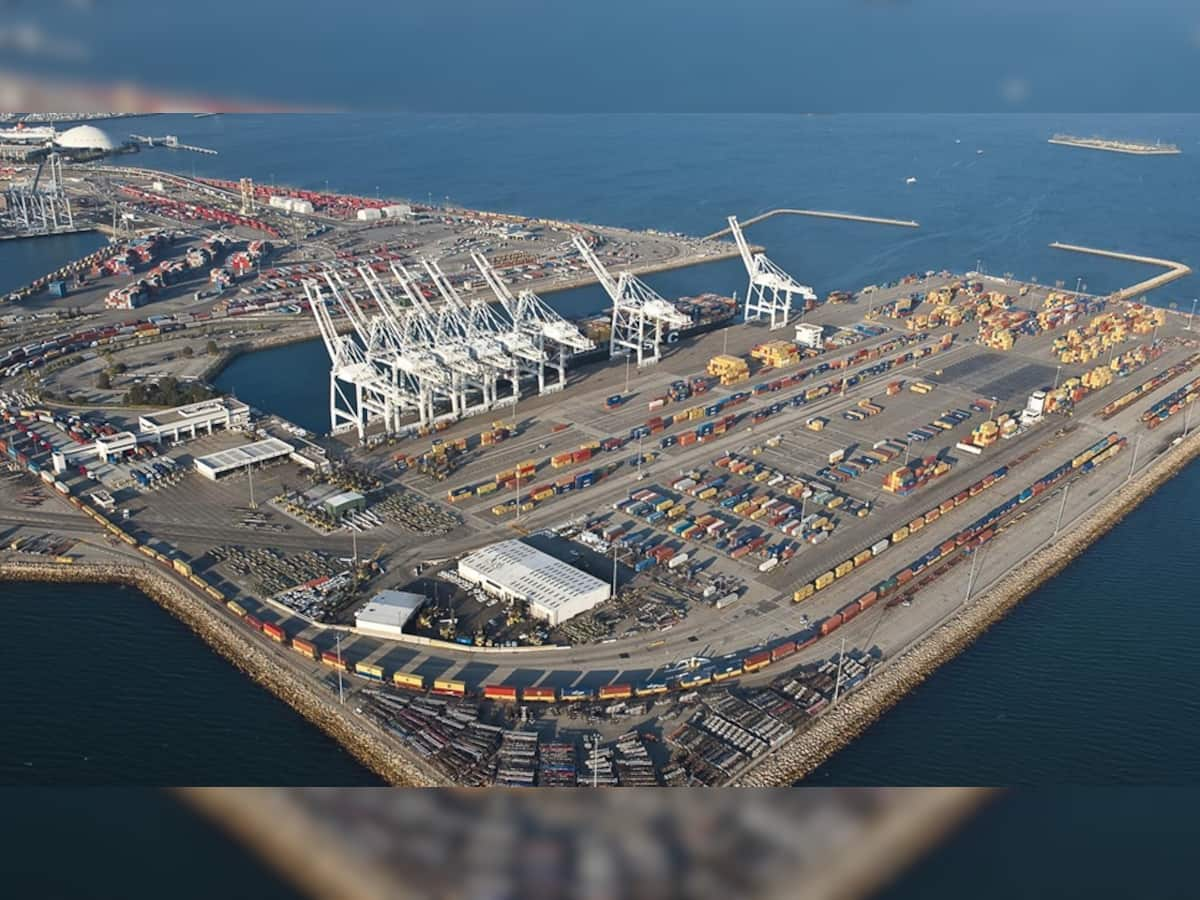Politics
US Revokes Chabahar Sanction Waiver, Impacting India’s Strategy

The United States has revoked its sanctions waiver for the Chabahar Port, significantly hindering India’s strategic ambitions in Iran. This decision, announced by the US State Department on September 18, 2025, aims to intensify pressure on Iran, complicating New Delhi’s connectivity plans with Central Asia and Afghanistan.
The sanctions waiver, initially granted in 2018 under the Iran Freedom and Counter-Proliferation Act (IFCA), allowed India and other nations to develop Chabahar without facing US penalties. This port is not only a critical infrastructure project for India but also a vital alternative route to Afghanistan, circumventing Pakistan, which has historically restricted Indian access.
According to the State Department, the revocation aligns with ongoing efforts to impose “maximum pressure” on Tehran. The announcement warned that entities engaging with Chabahar could face significant sanctions. This marks a strategic shift from a policy that permitted India’s limited engagement with Iran, particularly for humanitarian reasons, to a more stringent approach.
Understanding the Implications for India
For India, the Chabahar Port represents more than just a logistical pathway. It symbolizes a lifeline to Afghanistan and Central Asia, enhancing trade while reducing reliance on Pakistan. In May 2024, India secured a 10-year agreement to operate a terminal at Chabahar, marking its first management of an overseas port. The project is linked to the International North-South Transport Corridor (INSTC), designed to connect India with Central Asia, Russia, and Europe.
The port has previously facilitated humanitarian shipments, including 20,000 tonnes of wheat to Afghanistan in 2023 and eco-friendly pesticides to Iran in 2021. India’s commitment was further illustrated in its 2024–25 budget, which allocated Rs 100 crore for Chabahar development.
The revocation of the waiver not only jeopardizes India’s investments but also its broader regional strategy. With the US taking a hardline stance, the situation compels India to navigate its relationship with Washington carefully.
Strategic Importance of Chabahar
Situated in Iran’s Sistan-Balochistan province on the Gulf of Oman, Chabahar is strategically positioned just 170 km from Gwadar Port, which is backed by China as part of the China–Pakistan Economic Corridor (CPEC). For India, this port serves multiple strategic purposes:
– It provides a reliable trade route to Afghanistan, independent of Pakistan.
– It enhances India’s role in Central Asian energy markets.
– It serves as a counterbalance to China’s influence in the Arabian Sea.
The US decision places India in a precarious situation. While New Delhi has strengthened its partnership with Washington, particularly in defense and technology, losing the Chabahar project could undermine its connectivity ambitions across Eurasia.
As Indian officials prepare to engage diplomatically with the US, they hope for exemptions similar to those previously granted for humanitarian shipments. Yet, with the Biden administration reinforcing sanctions against Iran, the future of India’s aspirations regarding Chabahar remains uncertain.
The challenges ahead for India will require a delicate balancing act: defying US sanctions could jeopardize the broader strategic partnership with Washington, while retreating from Chabahar risks diminishing two decades of investment and planning.
-

 World5 months ago
World5 months agoSBI Announces QIP Floor Price at ₹811.05 Per Share
-

 Lifestyle5 months ago
Lifestyle5 months agoCept Unveils ₹3.1 Crore Urban Mobility Plan for Sustainable Growth
-

 Science4 months ago
Science4 months agoNew Blood Group Discovered in South Indian Woman at Rotary Centre
-

 World5 months ago
World5 months agoTorrential Rains Cause Flash Flooding in New York and New Jersey
-

 Top Stories5 months ago
Top Stories5 months agoKonkani Cultural Organisation to Host Pearl Jubilee in Abu Dhabi
-

 Sports4 months ago
Sports4 months agoBroad Advocates for Bowling Change Ahead of Final Test Against India
-

 Science5 months ago
Science5 months agoNothing Headphone 1 Review: A Bold Contender in Audio Design
-

 Top Stories5 months ago
Top Stories5 months agoAir India Crash Investigation Highlights Boeing Fuel Switch Concerns
-

 Business5 months ago
Business5 months agoIndian Stock Market Rebounds: Sensex and Nifty Rise After Four-Day Decline
-

 Sports4 months ago
Sports4 months agoCristian Totti Retires at 19: Pressure of Fame Takes Toll
-

 Politics5 months ago
Politics5 months agoAbandoned Doberman Finds New Home After Journey to Prague
-

 Top Stories5 months ago
Top Stories5 months agoPatna Bank Manager Abhishek Varun Found Dead in Well









